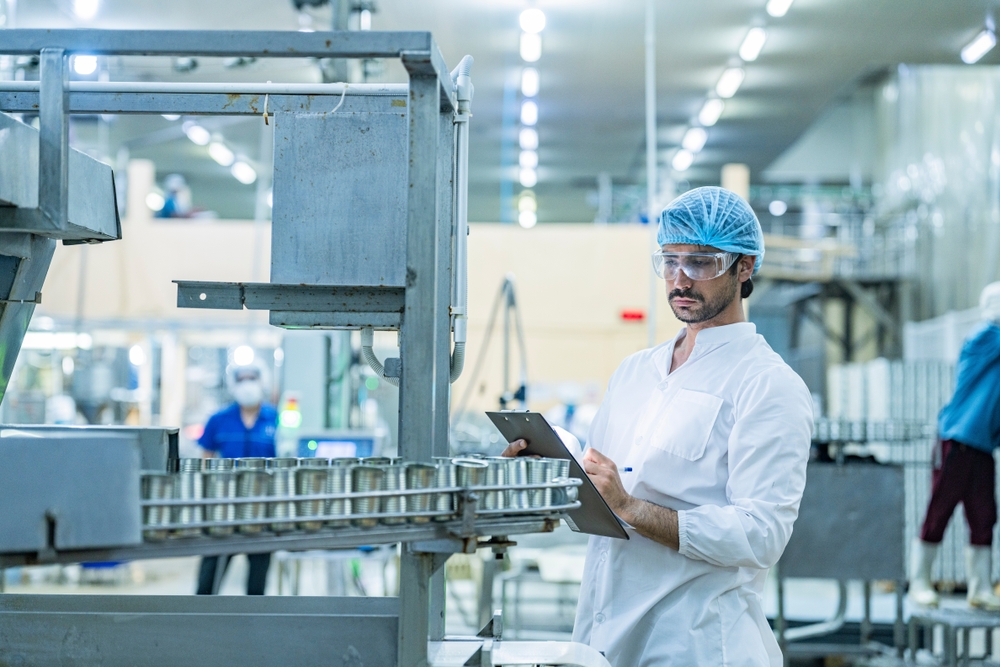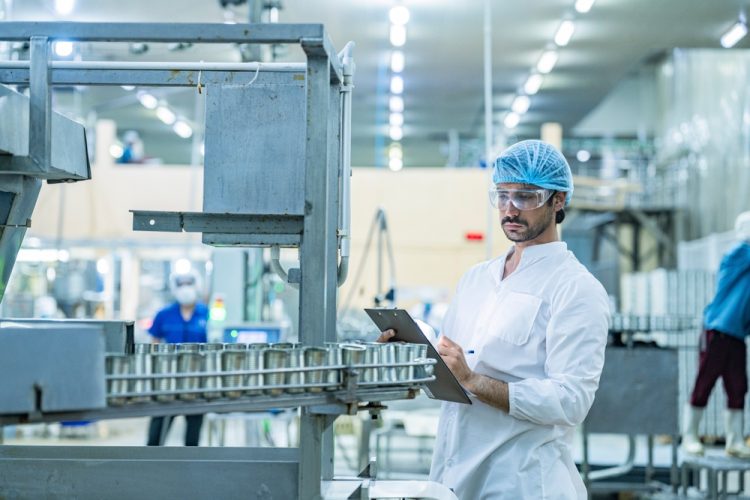41% of UK food and drink manufacturers scale back investment, FDF reveals

Economic pressures, new taxes and rising costs force UK food and drink manufacturers to scale back growth investments, says FDF report.


UK food and drink manufacturers are significantly scaling back or even cancelling planned investments, according to the latest findings from the Food and Drink Federation (FDF).
The FDF’s latest State of Industry report reveals that 41 percent of food and drink businesses are struggling to maintain their investment plans due to mounting economic pressures, government-imposed regulations and rising production costs.
Report findings
Confidence in the sector remains critically low, with a -43 percent confidence rate recorded in the first quarter of 2025. More than a third (33 percent) of businesses expect conditions to deteriorate further, with small and medium-sized enterprises (SMEs) particularly exposed – nearly half (47 percent) of SMEs anticipate worsening economic conditions ahead.
This pessimism is being driven by a combination of rising operational costs and new government policies, including the increase in the National Minimum Wage, higher employer National Insurance contributions and the £1.4bn Extended Producer Responsibility (EPR) packaging tax.
At the same time, production costs have also surged – rising 4.5 percent on average in the year to March 2025. Alarmingly, 22 percent of manufacturers reported cost increases of 10 percent or more, and forecasts indicate a further 4.8 percent rise over the next 12 months as energy, ingredients and labour prices continue to escalate.
These mounting pressures are compounded by falling consumer confidence, which dropped to -23 in April 2025, and a 6 percent fall in retail sales over the last five years. As a result, food and drink manufacturers are finding it increasingly difficult to justify or pursue long-term growth investments.
Despite these challenges, manufacturers are still keen to innovate. More than half (54 percent) of businesses plan to prioritise investment in automation in the coming year. This is crucial for the sector, as it grapples with severe labour shortages, high employment costs, and a persistent skills gap. Automation offers a pathway to maintain productivity without significantly increasing wage bills. Additionally, automated processes can streamline operations, reduce waste and improve overall efficiency — all of which are vital in today’s high-cost environment.
Additionally, 13 percent of businesses aim to focus on research and development (R&D), particularly to create healthier products that cater to evolving consumer demands.
Call for government intervention
However, the FDF warns that these ambitious investment plans could go unrealised without immediate and targeted government intervention. Therefore, the Federation has called for action on several fronts, including:
- Prioritise EU trade relations: Reviving exports, which have fallen over 30 percent since Brexit, must be a priority.
- Ringfence the £1.4bn EPR cost: Ensure that the EPR fees are spent solely on improving recycling infrastructure, not local authority funding shortfalls.
- Secure a fair share of UK R&D funding: Allocate more resources to food and drink manufacturing for developing healthier products and achieving net-zero goals.
- Develop a workforce and skills plan: Address the chronic labour shortages within the sector by partnering with Skills England to upskill the workforce.
- Simplify the R&D tax credit system: Encourage more investment in productivity, technology, and product innovation by streamlining the current system.
- Remove unnecessary regulations: Simplify and streamline existing red tape to support the 12,000 SMEs in the sector.
The FDF believes these actions are vital not just for restoring growth, but for ensuring the sustainability, long-term security and competitiveness of the UK’s food and drink manufacturing sector.
Balwinder Dhoot, Director of Industry Growth and Sustainability at the FDF, commented:
Not only does the food and drink manufacturing sector contribute £37bn and half a million jobs to communities across the UK, but it’s also fundamental to the nation’s food security. So, it’s concerning that businesses are having to scale back investments that would help drive long-term growth and productivity as they ride out a wave of cost rises.
The Government must reflect the value that food and drink manufacturing has to our country by ensuring growth for our industry is a top priority in its upcoming Industrial and Food Strategies. We urge government to give businesses the support they need to make investments that will support the resilience of the food industry.”
Source: newfoodmagazine.com

